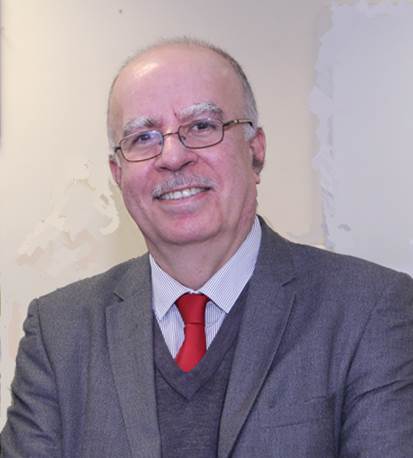7th International Conference on Emerging Technologies in Computing 2024
(iCETiC '24)
University of Essex, Southend Campus, UK |
 |
|
|
| Keynote Speaker-1: Professor Sarah Morris |
|
Professor Sarah Morris has over 14 years of experience in complex technical digital forensic investigations. Sarah is currently based within the Cyber Security group in the School of Electronics and Computer Science at the University of Southampton. Sarah is focused on Digital Forensic Investigations and Exploitation, a field devoted to the digital analysis of a variety of digital devices for any investigative scenario. This includes (but is not limited to) digital forensics, incident response, intelligence operations, open-source intelligence, civil proceedings, and corporate investigations. Sarah is focused on binary level analysis where appropriate and has a broad and deep technical skillset.
As a well-known Digital Investigation practitioner and academic, she has given many interviews across TV, radio, and print formats. Her media engagements have included: BBC Radio 4 (Facebook live and live radio event), BBC World Service, BBC Radio 4 pre-records, HR Knowledge Bank, The Engineer, and BCS Now. Sarah was also the academic chosen to provide her views on education for the digital forensic focused special issue of the Police Professional magazine in 2019. In 2020, Sarah worked with CNN on an exclusive investigation, providing document analysis for an exclusive Covid related story.
Sarah is casework active , focusing on Digital Investigations. She also performs complex data/document recovery and general consultancy, including ISO accreditation reviewers for organisations on request. She has worked on both civil and criminal investigations across a wide sphere of devices and operations. Sarah has worked with a variety of clients, including Civil, Criminal, Corporate, and Celebrity. Her most famous case involved the recovery of data from a smart washing machine.
Sarah gave oral evidence at the House of Lords as part of a Select Committee inquiry into Forensic Science (2018). In 2018 she was also the only academic shortlisted for the Women in Defence Awards. Sarah has also won 4 teaching awards in her time at Cranfield University.
In 2021, Sarah's experience in Digital Forensics Casework, Research and Academia led to her being appointed to the Biometrics and Forensics Ethics Group (BFEG), a non-departmental public body sponsored by the home office.
|
|
|
|
|
|
| Keynote Speaker-2: Professor Raed Abd-Alhameed |
|
Raed A Abd-Alhameed is Professor of Electromagnetic and Radio Frequency Engineering at the University of Bradford, UK. He received the B.Sc. and M.Sc. degrees from Basrah University, in 1982 and 1985 respectively, and the Ph.D. degree from the University of Bradford, UK, in 1997, all in electrical engineering.
He has long years research experience over 25 years in the areas of Radio Frequency, Communications systems, Signal processing, antennas and electromagnetic computational techniques, and has published over 800 academic journal and conference papers; in addition he is co-authors of eight books and several book chapters. He is the senior academic responsible for electromagnetics research in the communications research group, in which a new antenna design configurations and computational techniques have been developed including several patents were considered and filed. Jointly with Dr James M Noras and Prof Excell, he has developed the principle of the hybrid method for electromagnetic field computation, which is able to combine the most appropriate method for differing regions of a problem (e.g. the human head and a mobile telephone). This method is recognised as being a leading area of research in Bioelectromagnetic field computation. He also investigates the reduction of the size of antennas for personal mobile communications. The development of this kind of antenna is under active investigation (seven patent applications submitted). He has also developed the mathematical tools needed for the simulation of non-linear circuits, including energy-storing devices. Moreover, He has written three different programs for electromagnetic scattering problems (Wire Antenna design; Dielectrically-loaded antennas and Microstrip Wire antennas) and one code for analysis of nonlinear circuits using Volterra series. Interest has been shown by publishing houses in finding ways of disseminating this work. In addition, the expertise developed in this research area, in particular the highly realistic analysis of antenna design process in the presence of large multi-layer scatterers, using the Bradford-developed hybrid modelling techniques (MoM, FEM, FDTD, FDFD and subgridding FDTD methods), can significantly benefit the proposed research projects. At the present he is the leader of the Communications systems, Antennas, Propagation and Computational Electromagnetics research group and head of Radio Frequency and Electromagnetics Research in the School of Biomedical and Electronic Engineering, Faculty of Engineering and Informatics, Bradford University, UK.
|
|
|
|
| International Association for Educators and Researchers (IAER), registered in England and Wales - Reg #OC418009 Copyright © IAER 2021 | |
|

